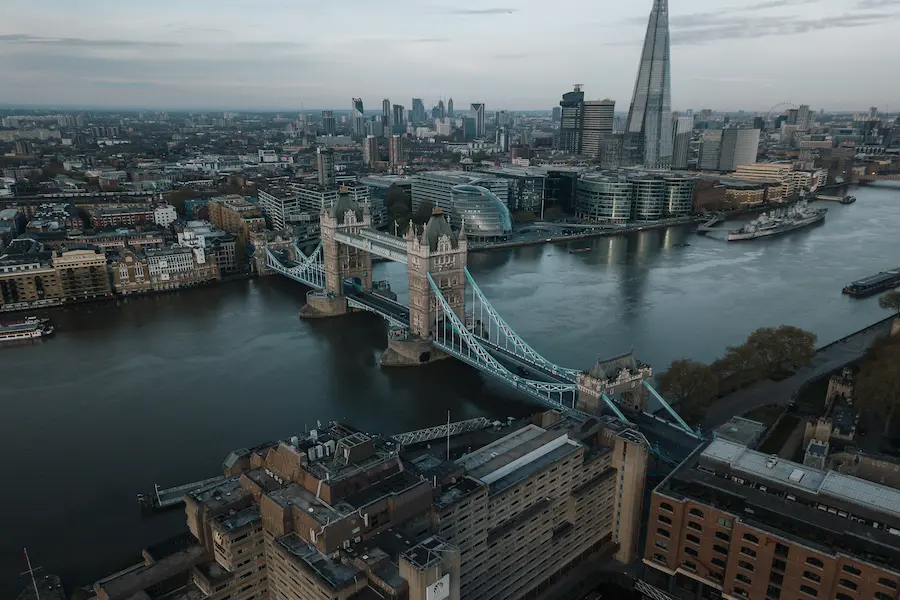Celebrating 5 sustainable UK fashion brands for Sustainable Fashion Week
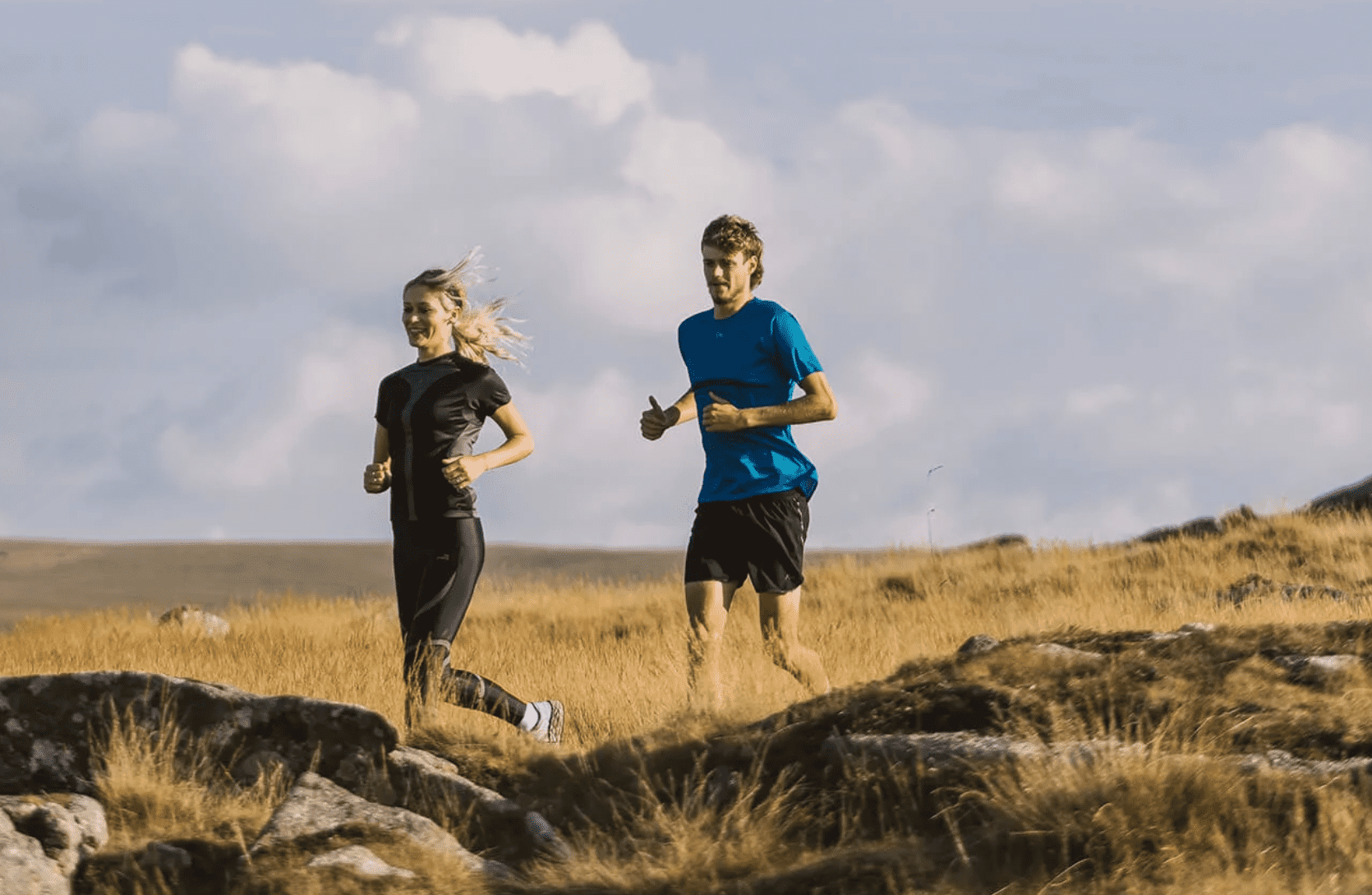
Autumn is here again, which for many of us, evokes a welcome nip in the air, leaves changing colour and pumpkin spice becoming a major food group. However, for fashionistas across the country, September means one thing: Fashion Week.
Fashion Week represents one of the cultural highlights of the year, where creativity flourishes in an industry that is a pivotal part of the UK economy (recent British Fashion Council estimates put the fashion industry’s contribution to UK GDP at £32.3 billion a year). But this cultural and economic benefit comes at a price.
The fashion industry accounts for up to 10% of global carbon emissions — more than international flights and shipping combined. Garments made from polyester and other synthetic fibres are a major source of microplastic pollution, while fast fashion promotes dangerous and unethical working practices.
The global fashion industry is in crisis, needing total transformation to reduce its negative social and environmental impact. The last few years have seen real innovation in the sustainable fashion space, from Stella McCartney to Kering. However, too often, ethical and sustainable fashion comes with a price tag that few of us can afford.
This year, Sustainable Fashion Week, based in Bristol but featuring events across the UK, seeks to showcase the best of the UK’s sustainability-led creativity.
As the only fashion week of its kind, it aims to generate action from the ground up that supports a change in our relationship with fashion, empowering everyone – from makers to consumers alike – to use their influence to move the fashion industry towards a more sustainable model. Here, we’ve collated some of our favourite ground-breaking brands that are paving the way for sustainable fashion in the UK:
- Presca: taking responsibility for the lifecycle of its clothes
- Birdsong: ethical fashion that respects people and the planet
- Yes Friends: making ethical clothing affordable
- Rapanui: surf-inspired clothing made in real time
- People Tree: three decades of Fairtrade fashion
1 Presca: taking responsibility for the lifecycle of its clothes

Presca is the world’s first climate positive sportswear brand, created by a group of cyclists, triathletes and runners with the aim of producing performance activewear with the minimum possible impact on the environment. All garments are made from recycled, renewable or deadstock fabric (surplus materials from textile mills and garment factories) in Europe or the UK, with factories that have signed a code of conduct.
Presca also runs a repair, replace and recycle scheme, with free adaptions for customers with disabilities and rewards for customers that keep its products for more than three years. The brand has also been open about its packaging journey, recently making the decision to move away from ‘compostable’ packaging and back to plastic, which it says can be more widely recycled.
2 Birdsong: ethical fashion that respects people and the planet
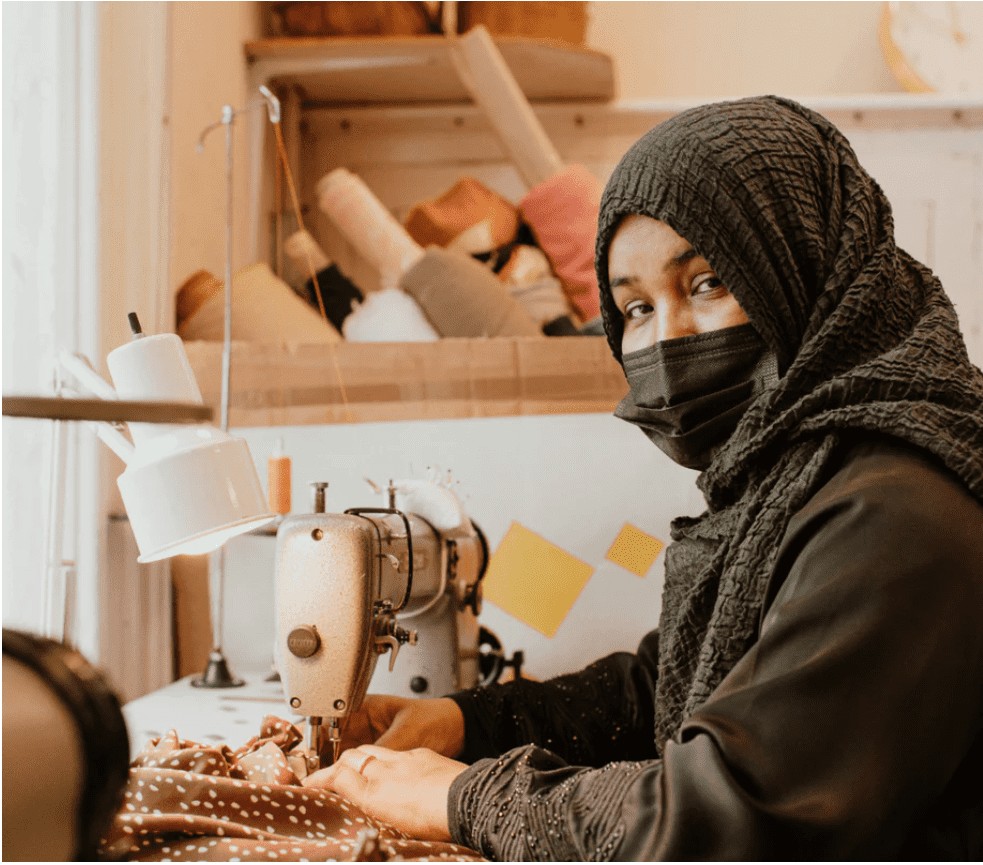
Birdsong is a boutique womenswear label, handmade in London by skilled knitters and seamstresses that face barriers to employment, earning above the London Living Wage. The business is built on a philosophy of fairness and authenticity, promising customers “no sweatshop, no photoshop”, and with sizes ranging from 2XS to 3XL.
Birdsong creates its products using responsible materials such as bamboo lyocell, TENCEL™, organic cotton, and reclaimed fabrics from charities such as Traid. It also works to cut down on waste by doing limited editions, an entirely pre-order collection (to avoid overproduction), and turning scrap fabric into bags and scrunchies.
3 Yes Friends: making ethical clothing affordable
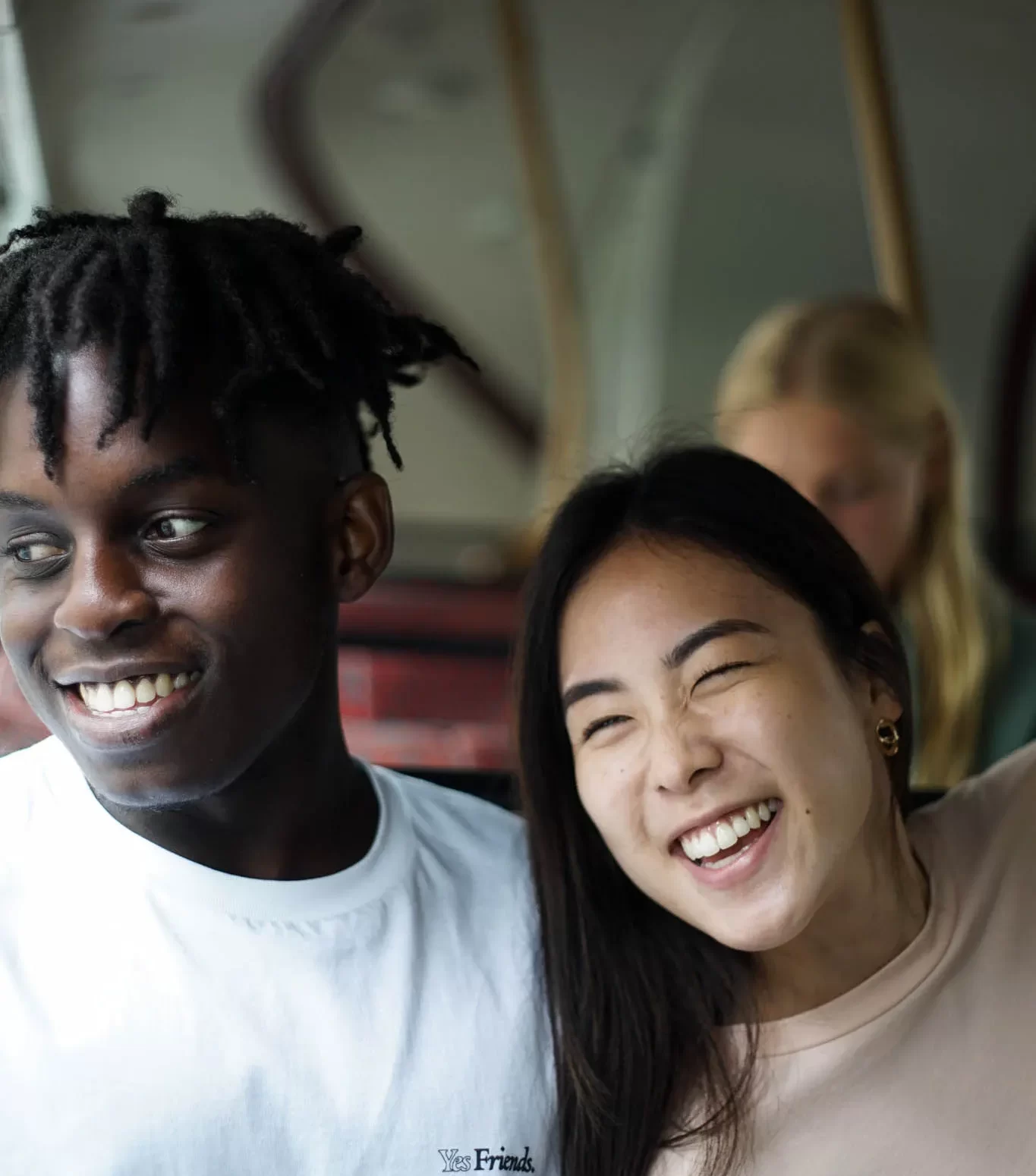
Yes Friends is a UK-based fashion brand that creates sustainable, ethical, and affordable clothing for everyone. Using large scale production and direct to consumer margins means Yes Friends can charge an affordable price for its sustainable and ethical clothing. The result of this approach is that Yes Friends’ first product, classic cut T-shirts inclusively sized in 2XS-4XL, cost less than £4 to make, with the brand charging £7.99.
Yes Friends is part of the Fair Share Scheme, meaning it pays an additional premium on every T-shirt which goes directly to garment workers. It uses a factory powered by wind and solar energy and pays farmers a Fairtrade Price for the organic cotton used to make its T-shirts and hoodies.
4 Rapanui: surf-inspired clothing made in real time

Rapanui is an award-winning eco-fashion brand from the UK that makes surf-inspired clothing in a wind-powered factory. From surf towels to hoodies, all clothing is made from natural materials and delivered in plastic-free packaging.
In its factory on the Isle of Wight, Rapanui’s T-shirts are produced in real-time, one at a time, in the seconds after they are ordered – so that there is no waste. Every product it makes is also designed to be sent back to Rapanui when it is worn out, to be remilled and made into something new.
5 People Tree: three decades of Fairtrade fashion
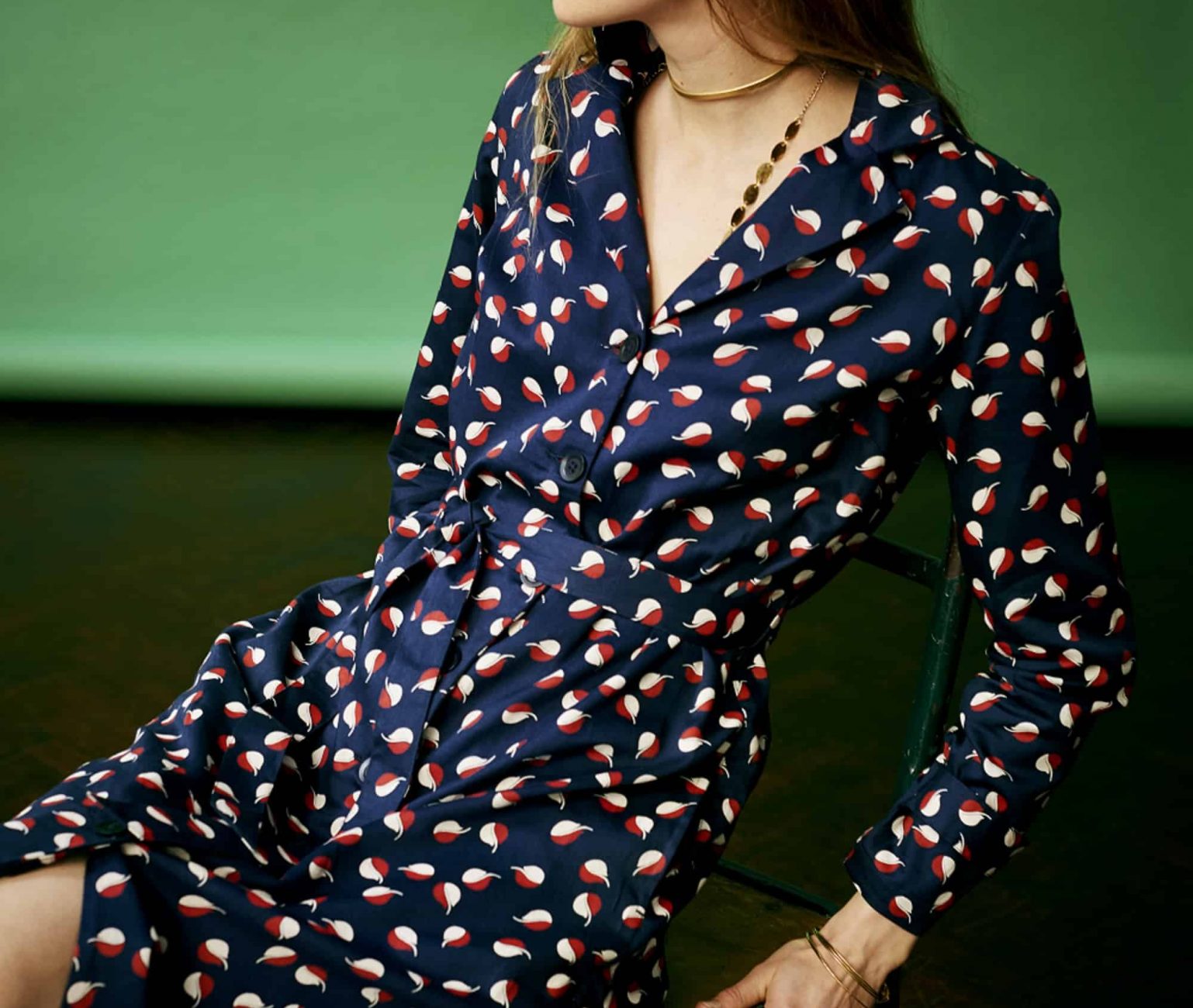
Sustainable fashion pioneer People Tree has been leading the UK fashion industry for environmentally friendly practices since 1991. The brand uses eco-friendly materials and addresses labour risks by adopting the Fairtrade International Small Producers Organisations Code of Conduct.
What’s more, collections featuring organic cotton, TENCEL™ Lyocell and responsible wool are made using traditional artisan skills such as hand weaving, hand knitting, hand embroidery and hand block printing, which helps to create employment in rural areas where work is often scarce.
To help drive real change and meet the UN’s Sustainable Development Goals, the UK’s fashion industry must use its creative power to develop new innovations and adopt sustainable business practices. It’s imperative that change happens not only within high-end brands and large corporates, but at every level of affordability and business size. SMEs in particular – which make up half of the businesses in the fashion ecosystem – play a critical role in helping to demonstrate new ways of working and inspire the fashion industry to adopt sustainability-led creativity.
At Greenhouse, we work exclusively with ethical organisations, developing communications campaigns that have positive impact and add real value to the company. If you are a sustainable fashion business looking for communications support, get in touch: info@greenhouse.agency.
You may also like:
